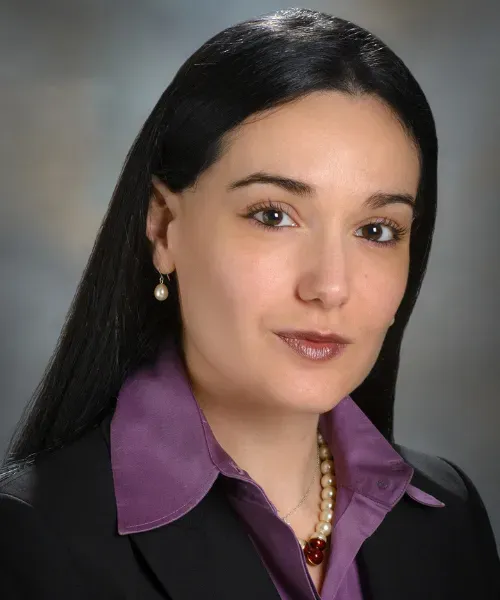Study reveals promising, less toxic treatments for patients with lung cancer

Dr. Tina Cascone received a 2018 Career Development Award , a 2016 Young Investigator Award, and a 2016 Merit Award from Conquer Cancer.
Researchers from The University of Texas MD Anderson Cancer Center published a study in Nature Medicine showing promising results for patients with non-small cell lung cancer (NSCLC). The study, called the NEOSTAR trial, is the first randomized Phase II clinical trial to report on single and combined neoadjuvant immune checkpoint inhibitor therapy in stage I-III NSCLC. The study’s lead author, Tina Cascone, MD, PhD., assistant professor of Thoracic/Head & Neck Medical Oncology at MD Anderson, is a three-time Conquer Cancer award recipient.
“More than 50 percent of patients with localized non-small cell lung cancer will relapse if treated with surgery alone. Adding chemotherapy produces only a modest improvement in overall survival, and it comes with toxicity,” said Dr. Cascone. “The results from our study with neoadjuvant combination immunotherapy are particularly encouraging in that we found that this dual treatment can induce higher pathologic responses and trigger immunological memory. This may translate into a reduced risk for tumor relapse in more patients with early stage non-small cell lung cancer.”
While combination immunotherapy has been approved for a subset of patients with metastatic NSCLC, this is the first randomized study to report on the role of combination checkpoint inhibitors for operable, early stage disease.
“The NEOSTAR trial results set the stage for evaluating the role of dual immunotherapy added to neoadjuvant chemotherapy, which we are currently exploring, and expediting the investigation of novel agents in the perioperative setting,” Dr. Cascone said. “This is a population with potentially curable disease. We should do whatever it takes to minimize the risk of relapse and increase the cure rates for these patients.”
For more information from MD Anderson on the NEOSTAR trial, click here.